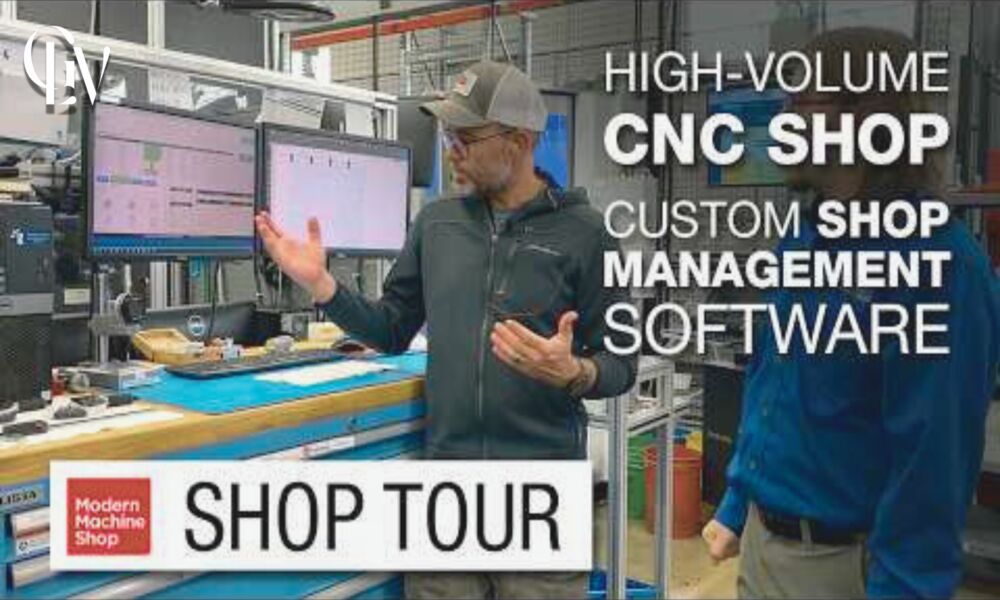Modern Machine Shop’s Industry Insights: Trends Shaping the Future of Manufacturing

Modern Machine Shop (MMS) consistently provides valuable insights into the ever-evolving manufacturing sector, offering perspectives on emerging technologies, trends, and challenges. As the manufacturing industry continues to innovate and adapt to new demands, MMS’s industry insights help businesses stay ahead of the curve. In 2025, the key focus areas for manufacturers include automation, sustainability, and digital transformation.
Key Industry Insights for 2025
- Embracing Automation and Robotics
Automation remains a top priority for manufacturers looking to enhance productivity, reduce human error, and improve efficiency.
- The integration of robotics and advanced automation systems into production lines is enabling companies to meet growing demand while reducing labor costs.
- Advanced robotics, such as collaborative robots (cobots), are increasingly being used to assist workers in tasks that require precision and flexibility. This trend is particularly important in industries such as automotive, aerospace, and electronics manufacturing.
- Industry 4.0 and Digital Transformation
Industry 4.0, characterized by the use of cyber-physical systems, IoT, and big data analytics, is accelerating the digital transformation of manufacturing.
- Manufacturers are implementing smart machines and sensors that communicate with each other to optimize processes and enhance decision-making.
- Predictive maintenance, powered by AI and machine learning, is allowing manufacturers to reduce downtime and increase equipment reliability. Additionally, real-time data analytics is enabling manufacturers to monitor performance metrics and optimize production processes in real time.
- Sustainability and Green Manufacturing
Environmental sustainability is becoming a central concern for manufacturers, driven by both regulatory pressures and consumer demand for greener products.
- Modern Machine Shop highlights the increasing use of sustainable materials, energy-efficient technologies, and waste reduction practices. Manufacturers are focusing on reducing carbon emissions, minimizing waste, and improving the energy efficiency of their operations.
- Green manufacturing also includes the use of additive manufacturing (3D printing) for creating complex, lightweight parts that reduce material waste.
- Additive Manufacturing (3D Printing) Integration
3D printing is no longer just a tool for prototyping—it has become a crucial part of the manufacturing process.
- Additive manufacturing is being increasingly adopted for production, offering benefits such as faster time to market, customization, and reduced material costs.
- The aerospace, medical, and automotive industries are particularly focused on the potential of 3D printing to produce lightweight, complex parts that were previously difficult to manufacture using traditional methods.
- Supply Chain Resilience and Localized Production
The disruptions caused by the COVID-19 pandemic and ongoing global trade challenges have highlighted the need for more resilient supply chains.
- Manufacturers are increasingly focusing on diversifying their supply chains and bringing production closer to home to mitigate risks associated with global disruptions.
- Localized production not only enhances supply chain resilience but also allows for quicker response times to market demand and a reduction in shipping costs.
- Workforce Development and Skills Gap
A key challenge faced by manufacturers is the growing skills gap in the workforce. As manufacturing processes become more digital and automated, the demand for skilled workers with expertise in robotics, AI, and data analysis is rising.
- Industry leaders are investing in training and education programs to develop the workforce of the future. Collaboration between manufacturers, educational institutions, and vocational schools is critical to closing the skills gap and preparing workers for advanced manufacturing roles.
- Smart Manufacturing and IoT
The integration of Internet of Things (IoT) technology into manufacturing processes is driving the development of smart factories.
- By connecting machines, devices, and systems through IoT, manufacturers can collect and analyze vast amounts of data to enhance operational efficiency, improve product quality, and reduce downtime.
- The rise of smart manufacturing is allowing businesses to implement real-time monitoring and remote management of production equipment.
Future Outlook for the Manufacturing Industry
Looking ahead, MMS highlights several trends shaping the future of the manufacturing industry:
- Hyper-Personalization: As consumer demand for customized products rises, manufacturers are increasingly investing in flexible, adaptable production processes that allow for personalized goods at scale.
- Cybersecurity: As manufacturing systems become more connected, securing data and protecting digital assets from cyber threats is becoming a top priority for manufacturers.
- Global Manufacturing Networks: Manufacturers are focusing on creating more agile and diversified global networks that allow for flexibility in sourcing materials, production, and distribution.
Conclusion
Modern Machine Shop’s insights into the manufacturing industry underscore the importance of technological innovation, sustainability, and workforce development in shaping the future of the sector. By embracing automation, digital transformation, and green practices, manufacturers can enhance their competitiveness and remain resilient in a rapidly changing market.
Visit Latest Interviews
Recent Posts
Related Articles
Why You Should Think About Your Domain Extension Before You Think About The Name?
Think of your domain extension like a surname—it wraps up your web...
ByGlobal Leaders ViewAugust 19, 2025Germany’s ‘Energiewende’ Initiative: A Vision for a Sustainable Future
Germany’s ambitious energy transition, known as the Energiewende, aims to shift the...
ByGlobal Leaders ViewJanuary 27, 2025Global Platform on Sustainable Cities Established
In a groundbreaking move toward addressing the challenges of urbanization and climate...
ByGlobal Leaders ViewJanuary 27, 2025Singapore’s Green Urbanism Initiatives
Singapore, known for its modern skyline and bustling urban environment, is also...
ByGlobal Leaders ViewJanuary 27, 2025















Leave a comment